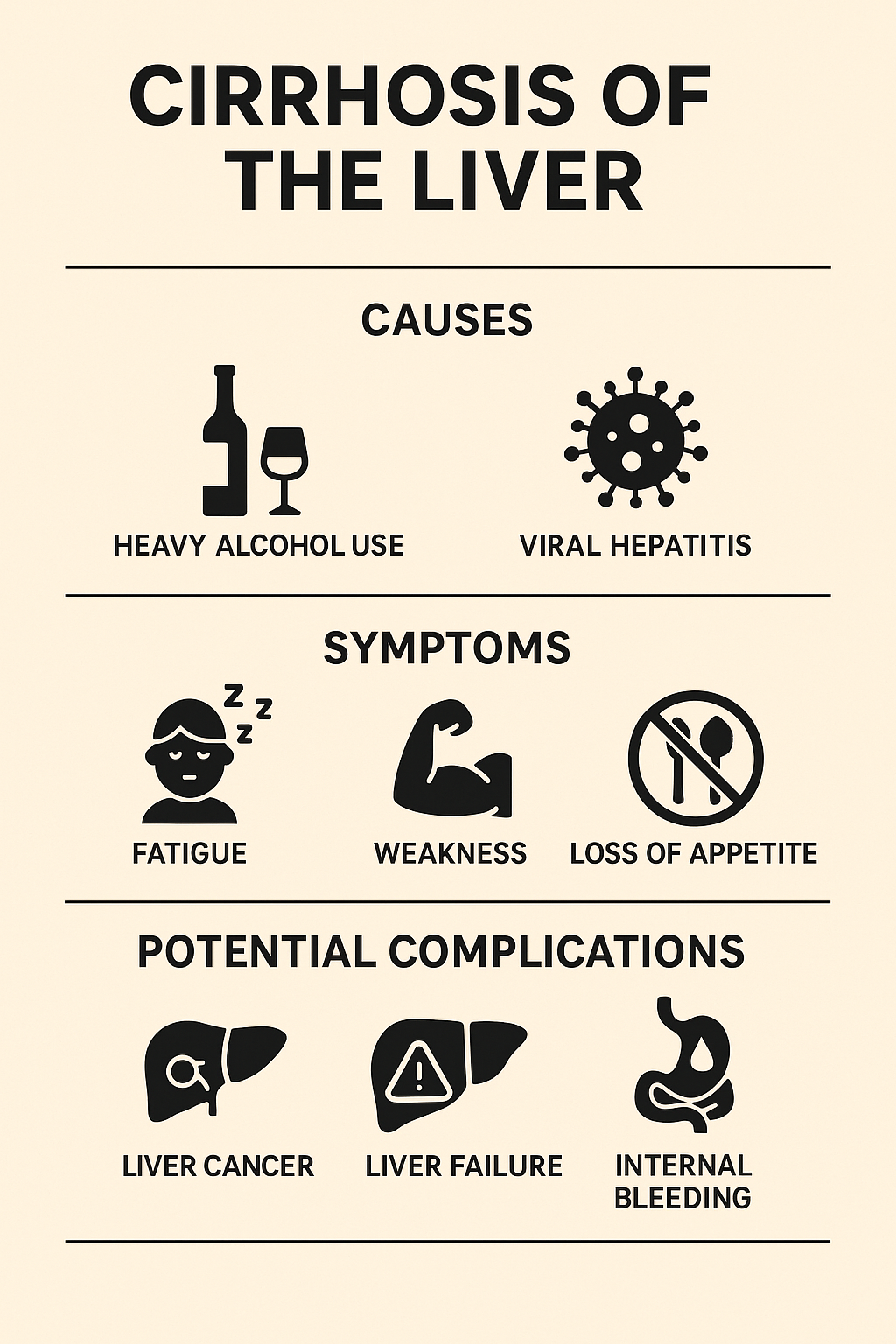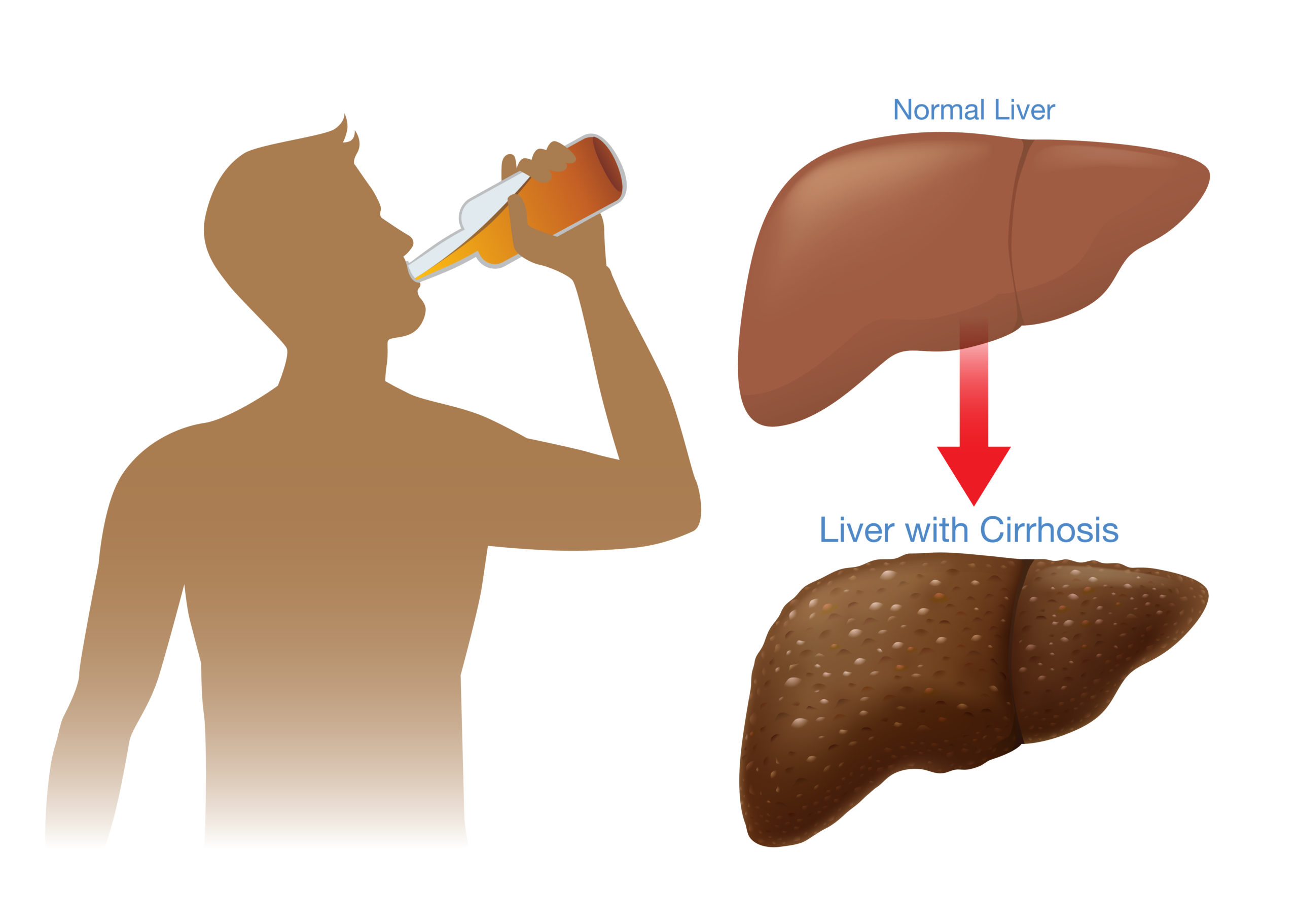I used to think a stiff drink after work was something everyone deserved, a little ritual that helped me unwind and celebrate the end of the day. For years, I brushed aside warnings, dismissing them as worry or overreaction. It wasn’t until I found myself in a doctor’s office, staring at scans, blood panels, and hearing the words “cirrhosis of the liver,” that I realized just how much alcohol had taken over my life. Dealing with cirrhosis brought some of the most complicated challenges I’ve faced, but it also taught me lessons I never expected to learn.
Understanding Cirrhosis and Its Link to Alcohol
Cirrhosis is one of those words you don’t pay much attention to until it’s personal. It’s a condition in which your liver becomes scarred and stops functioning properly. For a lot of people, including myself, it’s closely related to heavy drinking over the years. The liver is strong and can withstand a lot, but it has its limits. If you keep pushing those limits, things start to unravel in ways you can’t always fix.
The first signs of cirrhosis are sneaky. I felt tired all the time, lost weight, and got these persistent aches that I couldn’t explain away. By the time doctors finally diagnosed me, it had already done quite a bit of damage. Alcohol wears the liver out slowly, little by little. Eventually, even a small drink becomes too much for it to handle. This really opened my eyes to how hidden the effects of alcohol can be, even when everything feels fine on the surface. Sometimes, we miss the early warnings because we’re seeing alcohol as part of normal, everyday life, not as a potential problem.
Big Lessons Cirrhosis Taught Me About Alcohol
My relationship with alcohol changed a lot after that diagnosis. Doctors got pretty strict, and I had to rethink what a “normal” day looked like. Here are some of the lessons that stuck with me as I learned to accept and adapt to life post-cirrhosis.
- Alcohol isn’t just a “harmless routine”: I convinced myself for years that what I was doing was normal, even if I occasionally crossed a line. It was just what everyone did. Cirrhosis made me realize that “everyone” is a pretty poor excuse when your health is on the line. Even small, regular drinking adds up over months and years; just because it feels normal doesn’t mean it’s safe.
- Your body won’t warn you until it’s serious: Most people don’t feel their liver struggling until things have gotten pretty far along. I had no real pain, no dramatic warning, just slow, quiet damage building up. That drove home how easily alcohol’s damage can creep in, even for people who don’t see themselves in the old stereotypes of “problem drinking.”
- Moderation is trickier than it sounds: Health experts say to drink in moderation, and I used to think I knew what that meant. Cirrhosis helped me notice how lines can blur, limits get stretched, and one extra drink quickly becomes two or three. Quitting or cutting back takes more effort than just “deciding,” especially with habits formed over years. The blurred boundaries made moderation almost impossible for me, so complete abstinence became necessary.
- Real change needs support: Kicking alcohol isn’t only about willpower. After my diagnosis, I learned a lot about support groups, counseling, and honest conversations with friends and family. The adventure is challenging, and having people who understand or help you stay on track can make a huge difference. Asking for help was a big first step in actually making a change.
Starting Over: My Approach to Life Without Alcohol
Life changes significantly once you accept you can’t drink anymore. I had to rewire routines, avoid triggers, and create new habits from scratch. It didn’t come easily or overnight, but a few things helped me manage the process.
- Trying new daily habits: Evenings used to be about a drink. I started replacing that urge with activities like cooking, reading, or walking with my dog. Some days felt weird and uncomfortable, but new habits helped fill the space that drinking used to take up. Sometimes I’d pick up a hobby or connect with a friend instead of reaching for a drink, which made a real difference over time.
- Building a solid support network: I can’t stress enough how helpful it has been to have people on my side who get it. There’s comfort in talking to others living the same reality, whether online or in regular meetings. These connections kept me grounded when cravings or frustration popped up. Support became a safety net on tough days.
- Finding my triggers: Certain places, friends, or even songs made me want to reach for a drink. Avoiding triggers took some trial and error, but really paid off. Learning the difference between avoiding and coping was key: sometimes I just needed to call a friend, other times it meant skipping an event until I felt stronger. It was all about recognizing what pushed me closer to what I was trying to avoid.
Things to Watch Out For If You’re Worried About Drinking
If you’re concerned about your own relationship with alcohol (or someone else’s), some signs shouldn’t be ignored. Catching things early goes a long way in avoiding where I ended up.
- Physical signs: Weight loss you can’t explain, tiredness, belly swelling, frequent bruising, or changes in skin color, like yellowing, can all point to deeper health issues.
- Emotional changes: Getting defensive about drinking, hiding how much you drink, or needing alcohol to “feel normal” can all be red flags. Being honest with yourself about these shifts is key to making any real change.
- Routines and relationships: If you notice you’re missing out on activities, putting off responsibilities, or drifting from friends who don’t drink, it’s worth paying closer attention to what’s really going on. Sometimes, the social fallout is as telling as the physical symptoms.
My Experience with Early Signs
Looking back, I had plenty of little hints: frequent heartburn, trouble sleeping, and gradual isolation. I wish I’d listened earlier. Small changes like swapping out a drink for a nonalcoholic option or tracking how often I said “just one more” might have been eye-opening if I’d given them a real chance. Those little warnings are easy to dismiss, but usually point to bigger issues brewing under the surface.
Practical Changes That Helped My Recovery
Coping with cirrhosis means adjusting to a new way of living. Doctor’s visits, medications, and checkups became regular parts of my calendar. Here’s how I kept my head up and focused on what I could control.
- Hydration: Water is now a constant companion. Alcohol dehydrates your whole system, so staying hydrated is super important for recovery and feeling better day to day. I found that keeping a water bottle close at hand kept me on track.
- Nutrition upgrades: I had to learn a lot about healthy eating for liver health. My diet got a significant upgrade, focusing on fresh foods, lean protein, and less salt. Good nutrition gives you more energy and can help slow down additional liver scarring. Eating well helped support my body’s recovery in more ways than one.
- Mindset shifts: Recovery and just daily life worked better for me when I focused on simple, short-term goals instead of looking too far ahead. I stopped thinking about “never drinking again” and made it about “just for today.” Setting small wins helped me feel less overwhelmed.
- Being honest about setbacks: I didn’t get it right every day. Sometimes, cravings felt impossible, or frustration boiled over. The thing that changed was being honest with myself and others, rather than hiding setbacks or feeling ashamed. Admitting the struggle was actually part of getting better.
- Getting active again: Adding gentle movement, whether it was stretching, a walk, or light exercise, made a big difference in my mood and overall health. Even on rough days, doing something physical, even if it was small, gave me a positive focus.
Questions People Ask About Cirrhosis and Alcohol
Over time, I got a ton of questions from friends and people in recovery groups. Here are a few I hear most often, along with what’s helped me answer them.
Question: Can your liver really heal after stopping alcohol?
Answer: In some cases, yes. The liver can repair some damage if you catch things early and stop drinking altogether. My own doctor told me that once cirrhosis happens, it’s mostly about managing complications and preventing further damage. Every day without alcohol gives your liver a shot at holding steady or at least slowing down the disease.
Question: Is occasional drinking safe after cirrhosis?
Answer: For me, the answer was a clear no. Doctors made it very clear: anything is risky when your liver is already scarred, even on special occasions. I learned that “just one” isn’t worth what I could lose. If you’re diagnosed, honest conversations with your care team are super meaningful.
Question: How do you handle social events where drinking is the norm?
Answer: It’s awkward at first. Sometimes I’d bring a special nonalcoholic drink or find a buddy who didn’t mind skipping alcohol. If an event felt like too big a challenge, I’d skip it until I felt more comfortable. I found that most people were understanding, and the ones who weren’t really weren’t my people at all. Over time, I realized you can have fun and connect without alcohol in the mix. Building new traditions helped, too.
Moving Forward: What I Want Others to Know
Cirrhosis taught me a lot about how powerful and potentially dangerous alcohol can be—even if things seem fine for a long time. If you’re reading this and have any worries about your drinking or your health, don’t brush aside those gut feelings. Reach out. Talk to a doctor, a friend, or someone in a recovery group. The earlier you make changes, the better your odds are for a healthier life. I learned it the hard way, but if my story nudges someone else to pay attention sooner, it’s worth sharing every time.
Small steps every day really do matter. Even if quitting totally feels impossible right now, cutting back, swapping routines, or talking things through can help you build a foundation for change. My adventure with cirrhosis hasn’t always been smooth, but I’ve found support, purpose, and a whole new respect for what my body can, and can’t, handle. Every healthy day is a win, and I’m grateful for each one, no matter how simple. Remember, every bit of positive change counts, and you’re not alone on the ride to a healthier future.
Video: My Liver Failed Because I Ignored The Signs

